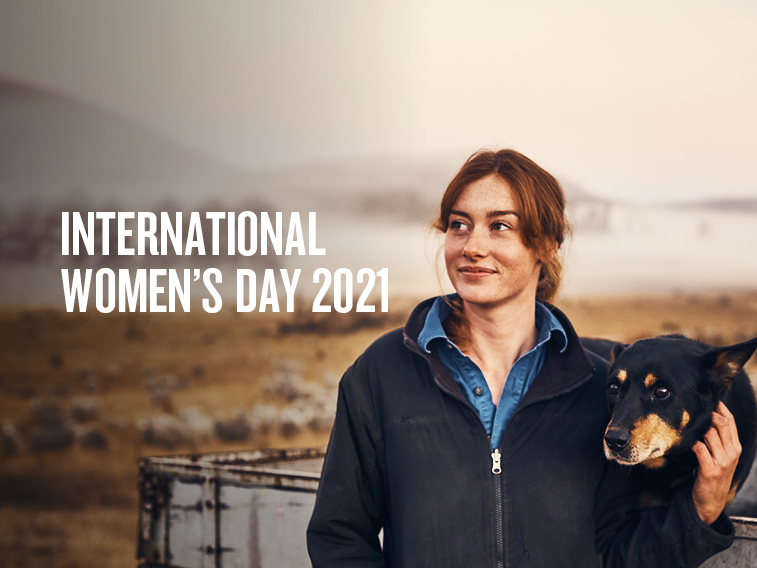An exclusive webinar to help you deliver the best outcomes for your R&A business. Watch now.


Webinar
Celebrating and recognising the crucial role that women play in Regional Australia.

We know that companies with the highest share of women in leadership roles outperform companies with no women by 41% in terms of return on investment and by 56% in terms of earnings before interest and tax, according to the McKinsey ‘Delivering Through Diversity’ Report.
We also know diversity is great for businesses. A more diverse and balanced workforce helps drive innovation and creativity that leads to faster problem solving and better customer outcomes.
As we celebrate International Women’s Day, we’re proud of what we have achieved so far at NAB as we work towards our gender equality goals. We are also proud of the impact this will have on our customers.
Starting at the top, we actively choose to challenge stereotypes, overcome bias, broaden perceptions, improve situations, and celebrate women’s achievements.
From our Board through to entry level roles, NAB is striving for every level to have 40% to 60% of men or women represented.
Women now comprise 41% of NAB’s 650 Regional & Agribusiness bankers throughout Australia, and 50% of participants in NAB’s Graduate Program.
At NAB, diversity of thought, background and experience is valued, respected and promoted.
We are privileged to spend time with our regional and agribusiness customers every day, and see their extraordinary contributions first hand. It’s hard to believe it wasn’t until 1994 that Australian women could legally claim to be farmers, especially given NAB has been supporting women and men in agribusiness for 160 years.
Our nation has come a long way in the quarter century since then. We’ve seen women rightfully recognised for their work in farm businesses and take on critical leadership roles across the agribusinesses sector.
ABARES data shows women make up 32% of the agriculture industry’s workforce and contribute in many ways including on-farm and off-farm income and in volunteer and community work. It’s estimated women contribute 84% of all off-farm income.
The data also shows women make up 28% of all managers in the agriculture industry, with about half the women in agriculture working as managers.
What often isn’t represented in data is the diverse skills they develop and their silent but extraordinary on-farm contributions they make every day, not just to feed their own friends and families, but to feed our entire nation. They develop capabilities in animal husbandry, nursing, machinery operations, repairs, bookkeeping and financial decision makers, even in counselling families and communities through the tough times that inevitably come with life on the land.
Looking at the agribusinesses we support throughout Australia, we see these extraordinary women at work every day, such as Amy Field and her husband, Ben Houston, who started Southern Fields farm in Tasmania in 2008, and today, they are Tasmania’s only supplier of iceberg and baby cos lettuce to Australia’s largest supermarket chain, delivering 30,000 head a week. Or the fabulous generational story of Queensland beef producers Karen and Dan Penfold and their daughters, Bonnie, Molly, Jemima and Matilda, are the driving force behind the successful Four Daughters premium 150-day grainfed Black Angus beef brand. The family launched the brand in 2019 to diversify and expand their business with a firm eye on succession planning.
As Australia’s largest agribusiness bank, NAB recognises our responsibility to our people and community of customers throughout regional and rural Australia to do our part in driving gender equality and empowering women.
Diversity drives innovation, engages our people, builds productivity, and will ultimately deliver a more prosperous future for our sector.
© National Australia Bank Limited. ABN 12 004 044 937 AFSL and Australian Credit Licence 230686.